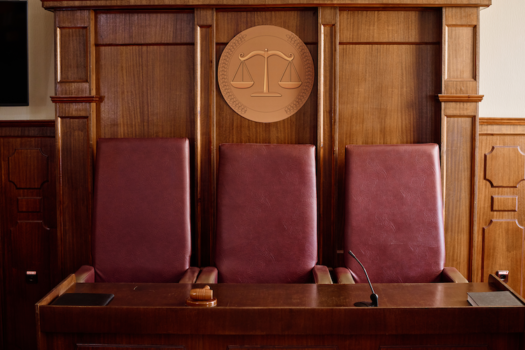
Unlike SCOTUS, the justices of the New Jersey Supreme Court often all agreed with one another this year, reaching August before issuing a single dissent.
The Court’s most precedential decision was Facebook, Inc. v. State, in which the justices unanimously held that Facebook could not be compelled to provide the prospective communications of two users based only on probable cause. Instead, police must go through the more extensive process of obtaining a wiretap order from the court.
“To conduct a search, the State ordinarily must demonstrate there is probable cause to believe evidence of a crime will be found at a particular place and must obtain a warrant,” Chief Justice Stuart Rabner wrote. “Gaining access to private communications in real time, however, is considerably more intrusive than a typical search. In those instances, the State must satisfy certain heightened requirements and apply for a wiretap order, which requires an enhanced showing — one beyond probable cause.”
The New Jersey Supreme Court also made headlines in several other criminal law cases.
In State v. Cornelius C. Cohen, the Court clarified the bounds of a legal search under the Fourth Amendment’s automobile exception based on the suspected presence of marijuana. The Court unanimously held that officers exceeded the scope of the exception in searching the trunk and engine compartment of a vehicle.
“Expanding the search to the engine compartment and trunk went beyond the scope of the automobile exception,” the New Jersey Supreme Court ruled. “Although the trooper smelled marijuana in the passenger compartment of the car, his initial search yielded no results and provided no justification ‘to extend the zone of the…search further than the persons of the occupants or the interior of the car.’”
The New Jersey Supreme Court also clarified when criminal defendants should have access to a police officer’s internal affairs file, an increasingly important issue given the rise of allegations of police misconduct.
In State v. Andre Higgs, the Court held that to ensure that defendants in criminal trials are provided with the discovery necessary to adequately prepare for trial, they must be allowed, under certain circumstances, to access documents in law enforcement’s internal affairs files. The court also adopted a procedure to be used going forward.
What’s in Store for 2024?
Looking ahead to 2024, both the U.S. Supreme Court and the New Jersey Supreme will continue to make headlines. The SCOTUS docket includes questions involving the First Amendment’s Free Speech Clause, Second Amendment restrictions, and election redistricting. Meanwhile, the New Jersey Supreme Court is poised to decide a host of high profile cases involving hot button issues, such as whether COVID-19 losses must be covered by insurance, whether resident email lists are subject to disclosure under OPRA, and the legality of non-disparagement.
